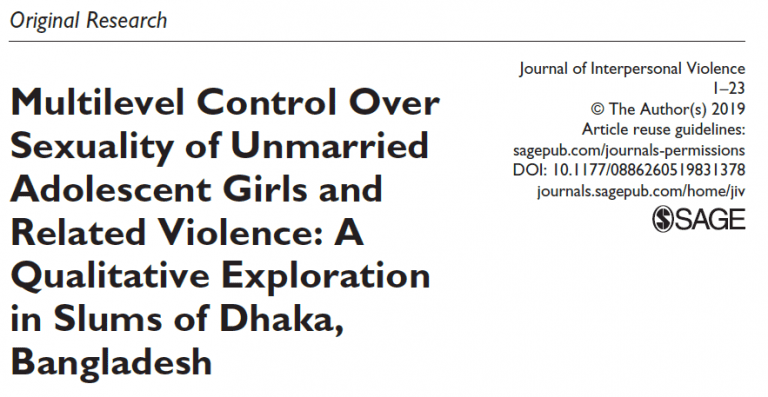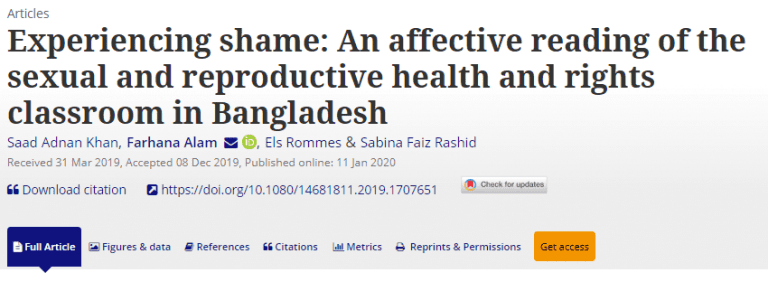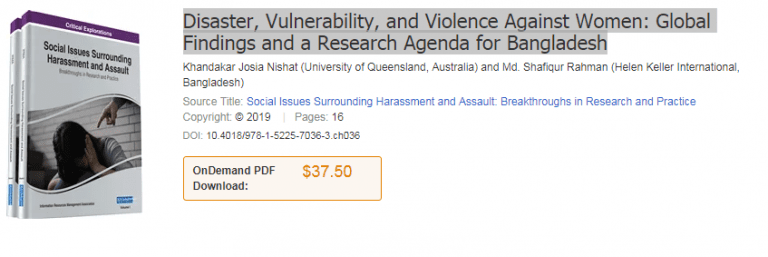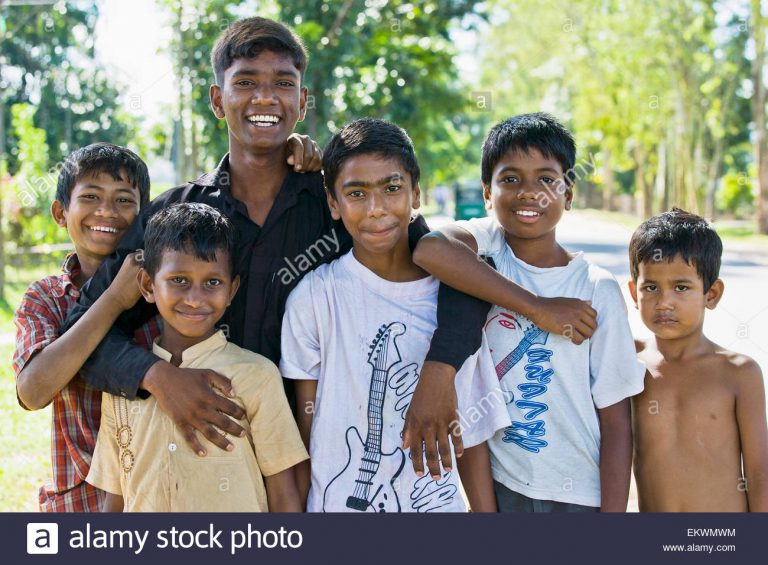
Menstrual Regulation in Family Planning Services
Menstrual regulation (MR) is the term applied to any treatment which is administered within 14 days of a missed menstrual period to ensure that a woman either is not pregnant or … Read More »

Multilevel Control Over Sexuality of Unmarried Adolescent Girls and Related Violence
High concerns about sexuality of unmarried adolescent girls (UAGs) in patriarchal societies and perceived links between sexuality and honor are likely to trigger controlling behavior and underlie a range of violence … Read More »

The pathways between female garment workers’ experience of violence and development of depressive symptoms
Background The prevalence of intimate partner violence (IPV) is high (54%) in Bangladesh. Moreover, female garment workers report higher rates of IPV and are also vulnerable to workplace violence (WPV). Experience … Read More »

Magnitude and correlates of intimate partner violence against female garment workers from selected factories in Bangladesh
Intimate partner violence (IPV) is a huge public health, development and human rights issue worldwide. Despite the fact that working women in patriarchal contexts commonly report higher level of IPV, literature … Read More »

A cluster randomized controlled trial to assess the impact of SAFE on spousal violence against women and girls in slums of Dhaka, Bangladesh
Background Bangladesh reports one of the highest rates of intimate partner violence (IPV) in the world. Despite wide recognition of IPV as an important public health and human rights issue, evidence … Read More »

Experiencing shame: An affective reading of the sexual and reproductive health and rights classroom in Bangladesh
This paper looks at how shame functions in the teaching of sexual and reproductive health and rights in the classrooms for 13–19 year-olds in secondary schools in Bangladesh. Using the theoretical … Read More »

Disaster, Vulnerability, and Violence Against Women: Global Findings and a Research Agenda for Bangladesh
Studies of natural disasters have adequately focused on gendered aspect of disaster and women’s vulnerability and offered suitable suggestions though only few of these have focused on the issue of the … Read More »

Trend of child marriage in Bangladesh: A reflection on significant socioeconomic factors
A complicating factor for child marriage in Bangladesh is age heaping or digital preference, where young girls misreport their age, claiming to be older or younger than they are. Analysis based … Read More »

Knowledge and Perception of Early Marriage among Adolescent Girls in a Selected Community of Rangpur District, Bangladesh
Early marriage (EM) is a threatened issue for adolescent girls. The direct reproducers for future generations are adolescent girls. Healthy adolescent girl indicate healthy future generation. The health of Bangladeshi adolescent … Read More »

Health care practices of slum dweller adolescent girls in Bangladesh: The case of Sylhet city
The aim of the paper is to know the health care practices of adolescent girls living in the slum areas of Sylhet city, Bangladesh, understand their health and hygiene issues including … Read More »
